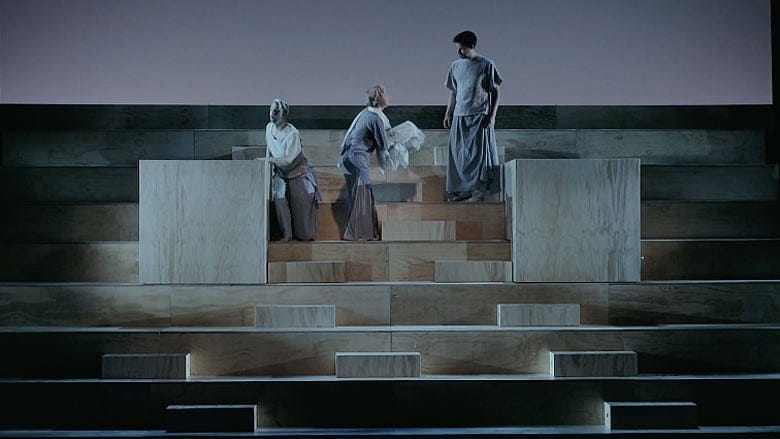Filmed ‘Easter Mysteries’ musical brings the Passion to life

BOSTON – As Easter approaches, films about the life and death of Jesus regularly pop up, and older movies from years ago get a second look. Many of these are epics, often featuring actors speaking with British accents, a clear indication of a Roman period piece (think "Gladiator"), a heroic tale, or both.
But a different kind of Easter film will hit theaters for one day only on Tuesday. "Easter Mysteries," which tells the story of Christ's last days, from his betrayal and crucifixion to the resurrection, through music. Producers of the movie filmed the musical production in front of live audiences, using 10 cameras. The techniques give the film a "real-time" feel, eliminating some of the distance between viewers and actors.

